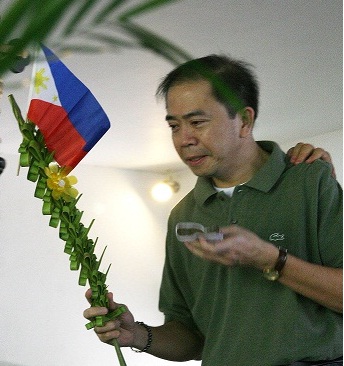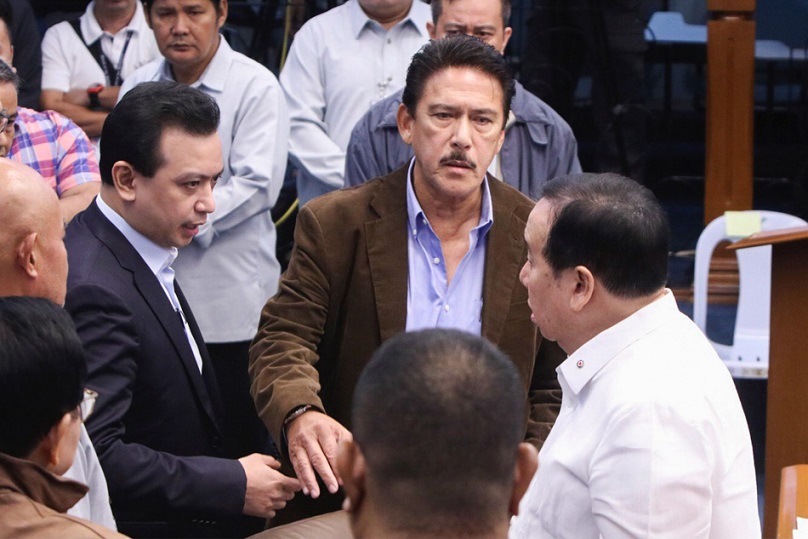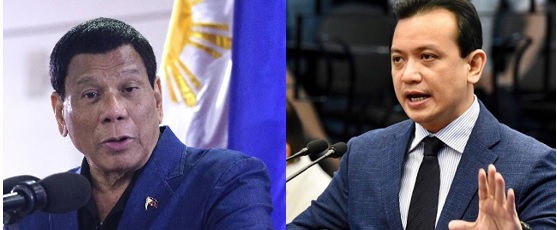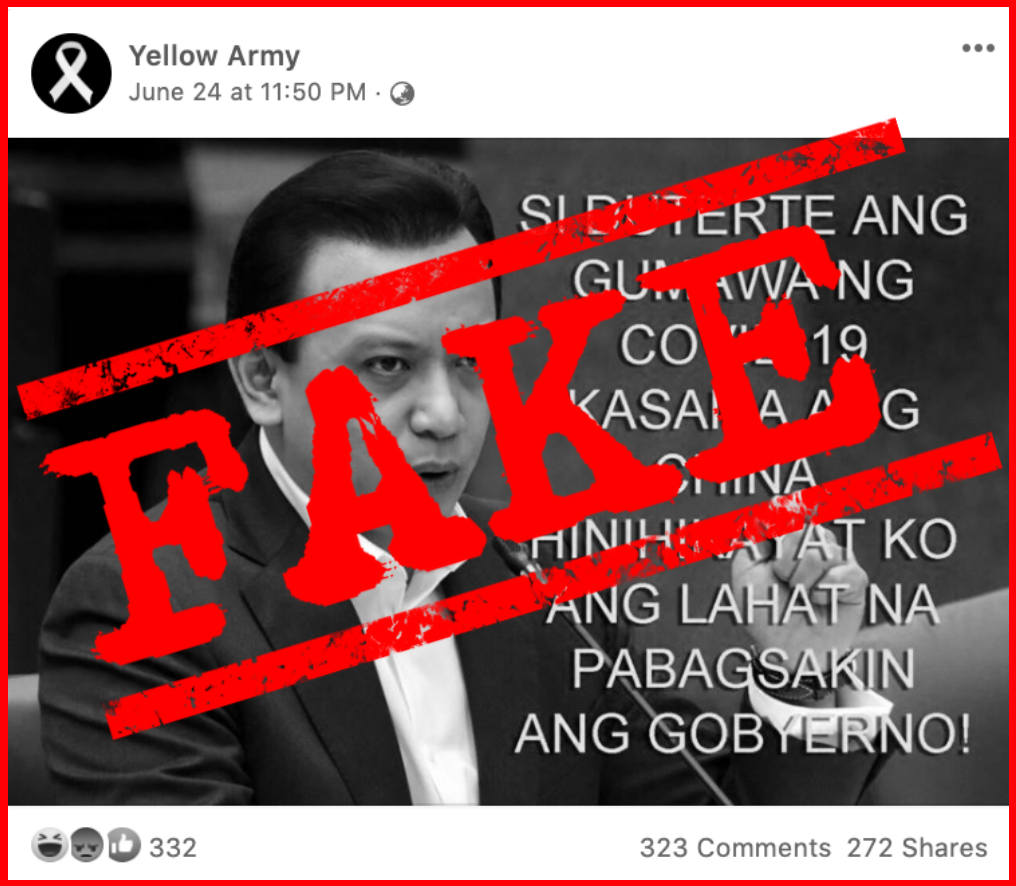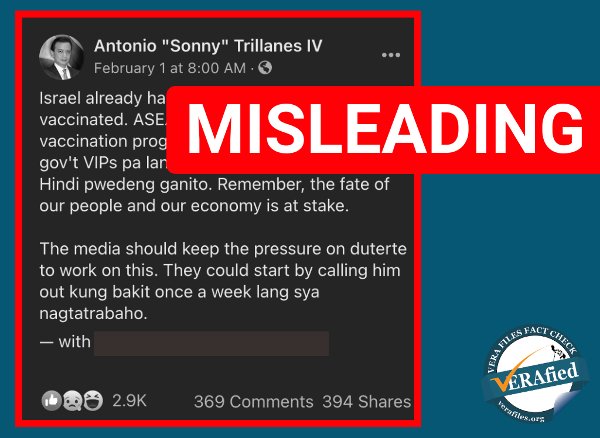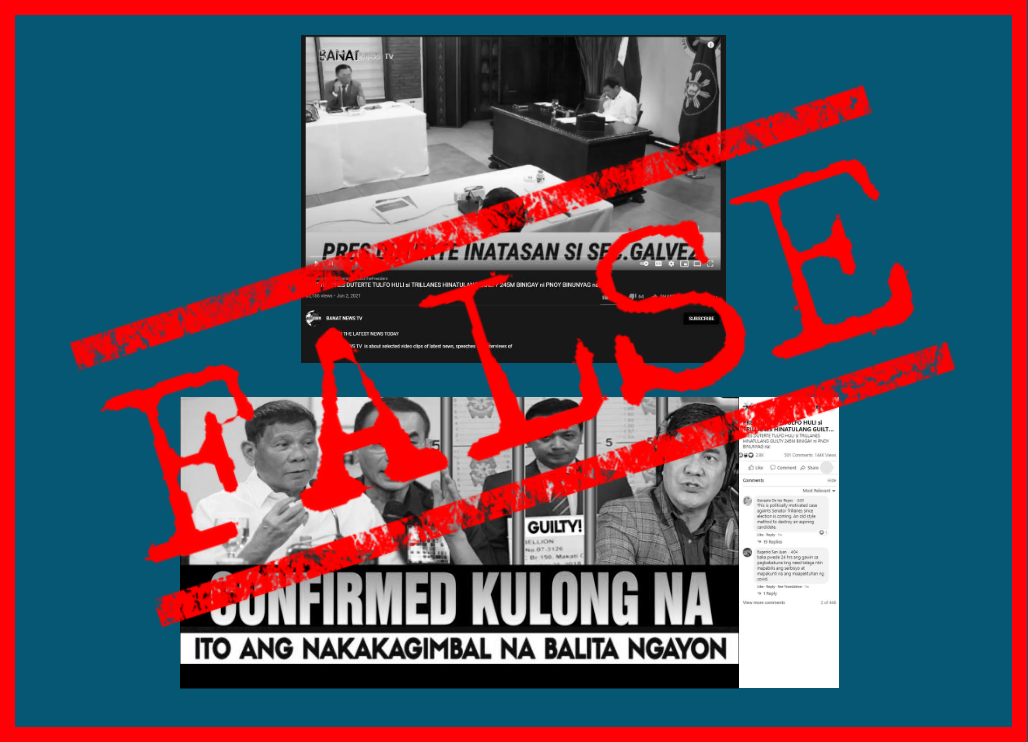By ELLEN T. TORDESILLAS
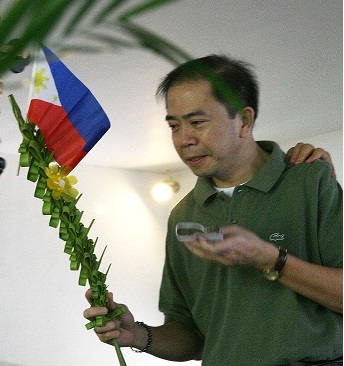
AT this time of his life, it’s his faith in God that keeps Rodolfo “Jun” Lozada Jr. going.
The government has failed him. The country’s justice system turned against him. Many “friends” have abandoned him after they have used him for their agenda.
After his conviction to six to ten years in prison by the Sandiganbayan last week in the case involving the lease of idle lands when he was president of the Philippine Foreign Corporation, a teary-eyed Lozada said the decision was difficult to take but he is holding on to faith in God: “I once said before, eight years ago, one of the lessons I learned is that the opposite of fear is courage. In reality, the opposite of fear is faith. So I’m holding on to faith in God.”
Sister Mary John Mananzan, one of those who have consistently helped Lozada and his family all throughout Jun’s eight- year ordeal deal, said the case would not have materialized if he did not testify in the aborted corruption-tainted $329.5 million national broadband project with the Chinese firm, ZTE Corp.
“I’m sure of it. All the cases against him came out after he became witness. If it was really his crime, why wasn’t he charged when he was with PFC?” she asked.
It should be recalled that Lozada was the star witness in the NBN-ZTE scandal involving Gloria Arroyo and her husband Mike Arroyo.
Arroyo’s officials tried to talk him out of testifying, even treating him to a junket in Hongkong. But when he decided to come back and testify, he was abducted and was only released because of the vigilance of civil society and religious groups.
But Arroyo did not take it sitting down. Lozada was charged with graft and corruption for making his brother Jose Orlando Lozada a beneficiary of PFC’s Lupang Hinirang Program which allows the lease of idle public lands. Orlando was also charged and convicted.
Former President Benigno Aquino III, whose mother, former President Cory Aquino, led masses and joined marches in support of Lozada, took a hands-off attitude towards the cased filed against Lozada.
It was later found out that Aquino, who was then a senator, probably desiring to score points during the senate hearings on the NBN/ZTE, had offered to meet Lozada at the airport from Hongkong. Lozada at that time was still weighing the pros and cons of going against the Arroyo government and declined Aquino’s offer.
Aquino reminded Lozada of that incident when he (Lozada) ,Sister Mary John and some supporters met with him in Malacanang to seek for his assistance to stop what they feel are harassment by Arroyo.
In a dismissive tone, Aquino told Lozada that he would just pardon him if he gets convicted.
Alas, that promise had been overtaken by events because Aquino is no longer in a position to grant him pardon.
Lozada’s conviction cuts very deep because all those charged in the NBN-ZTE had been gone scot free.
With what happened to Lozada, Sister Mary John said, “who would want to be a whistle-blower?”
She said “Whistle-blowers are needed in the fight against corruption. If not for them, who would be witnesses? “
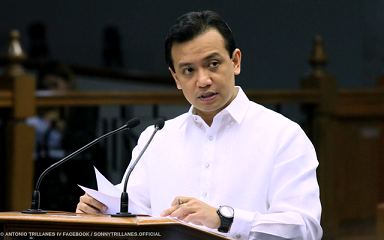
Related to the role of whistleblowers in the anti-graft campaign, Sen. Antonio Trillanes IV filed a bill (Senate Bill No. 290) seeking additional protection, security and other benefits for whistleblowers. At the House of Representatives, Kabayan Rep. Harry Roque has also filed a bill strengthening government and corporate accountability by supporting and protecting the right of employees to speak out about wrongdoing on the job.
In his first State of the Nation Address, President Duterte asked Congress to enact a Whistleblower Protection Law and strengthen the Witness Protection Program “to eradicate the prevalent cultures of fear and silence that have hounded our justice system.”
Trillanes said, “Several laws have been created to encourage whistleblowing; however, the existing legal framework barely meets the need for whistleblowers’ protection and support, and fails to provide them attractive incentives, considering the risks whistleblowers face when they surface.”
SB 290 which is in support of the government’s campaign against graft and corruption seeks to further uplift the welfare and protection of whistleblowers by giving them allowance sufficient for their daily basic financial requirements, housing and personal security. They are also given adequate protection by imposing penalties to employers, firms, companies or corporations that reject qualified applicants, on the ground that they are qualified whistleblowers or when a retaliatory act is committed against them in the workplace.
The bill further seeks to encourage witnesses to divulge the erring practices of public officials and employees by providing them additional monetary reward equivalent to at least ten percent of the amount which may be recovered as a result of their disclosure or the amount of One Million Pesos, whichever is lower.
“Many potential whistleblowers are discouraged from surfacing due to the risks it involves, including the security threat it entails, which sometimes completely destroy their future and prevent them from having a normal life. It is my hope that through this measure we can address the needs and promote the welfare of our whistleblowers, in exchange of the information relevant to our campaign in promoting good governance in the country,” Trillanes said.
